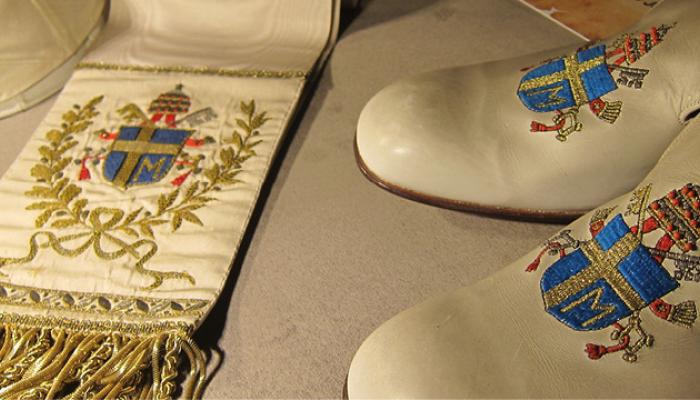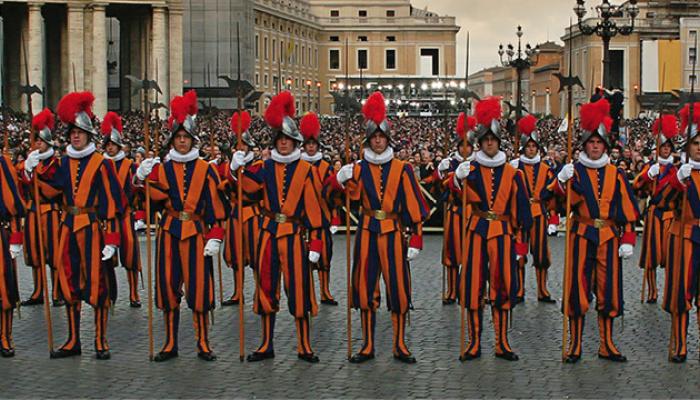
2.4 Hoe wordt iemand paus?
Wanneer een paus overlijdt of aftreedt, komen alle kardinalen onder de tachtig jaar bijeen in een conclaaf in het Vaticaan. Zij kiezen uit hun midden een nieuwe paus. Er wordt net zolang gestemd totdat een persoon minstens twee derde van de stemmen heeft gekregen. Hem wordt gevraagd of hij het pausschap aanvaardt en zo ja, welke naam hij als paus aanneemt.
De schoorsteen op de Sixtijnse kapel geeft met witte rookwolken aan dat er een nieuwe paus is gekozen. Deze wordt daarna op het balkon van de Sint Pieter aangekondigd met de woorden ‘Habemus Papam!’ We hebben een paus!
Why did Christ institute an ecclesiastical hierarchy?
Christ instituted an ecclesiastical hierarchy with the mission of feeding the people of God in his name and for this purpose gave it authority. The hierarchy is formed of sacred ministers,; bishops, priests, and deacons. Thanks to the sacrament of Orders, bishops and priests act in the exercise of their ministry in the name and person of Christ the Head. Deacons minister to the people of God in the diakonia (service) of word, liturgy, and charity. [CCCC 179]
How is the collegial dimension of Church ministry carried out?
After the example of the twelve Apostles who were chosen and sent out together by Christ, the unity of the Church’s hierarchy is at the service of the communion of all the faithful. Every bishop exercises his ministry as a member of the episcopal college in communion with the pope and shares with him in the care of the universal Church. Priests exercise their ministry in the presbyterate of the local Church in communion with their own bishop and under his direction. [CCCC 180]
Why does ecclesial ministry also have a personal character?
Ecclesial ministry also has a personal character in as much as each minister, in virtue of the sacrament of Holy Orders, is responsible before Christ who called him personally and conferred on him his mission. [CCCC 181]
Why is the Church not a democratic organization?
Democracy operates on the principle that all power comes from the people. In the Church, however, all power comes from Christ. That is why the Church has a hierarchical structure. At the same time, however, Christ gave her a collegial structure as well.
The hierarchical element in the Church consists in the fact that Christ himself is the one who acts in the Church when ordained ministers, by God’s grace, do or give something that they could not do or give by themselves, in other words, when they administer the sacraments in Christ’s place and teach with his authority. The collegial element in the Church consists in the fact that Christ entrusted the entire faith to a group of twelve apostles, whose successors govern the Church, with the pope, the Petrine ministry presiding. Given this collegial approach, councils are an indispensable part of the Church. Yet even in other administrative bodies of the Church, in synods and councils, the manifold gifts of the spirit and the universality of the Church throughout the world can be fruitful. [Youcat 140]
The blessed Apostles, having founded and built up the Church, committed into the hands of Linus the office of the episcopate. Of this Linus, Paul makes mention in the Epistles to Timothy. To him succeeded Anacletus; and after him, in the third place from the Apostles, Clement was allotted the bishopric. [St. Irenaeus, Against heresies, Bk. 3, Chap. 3 (MG 7, 849)]





